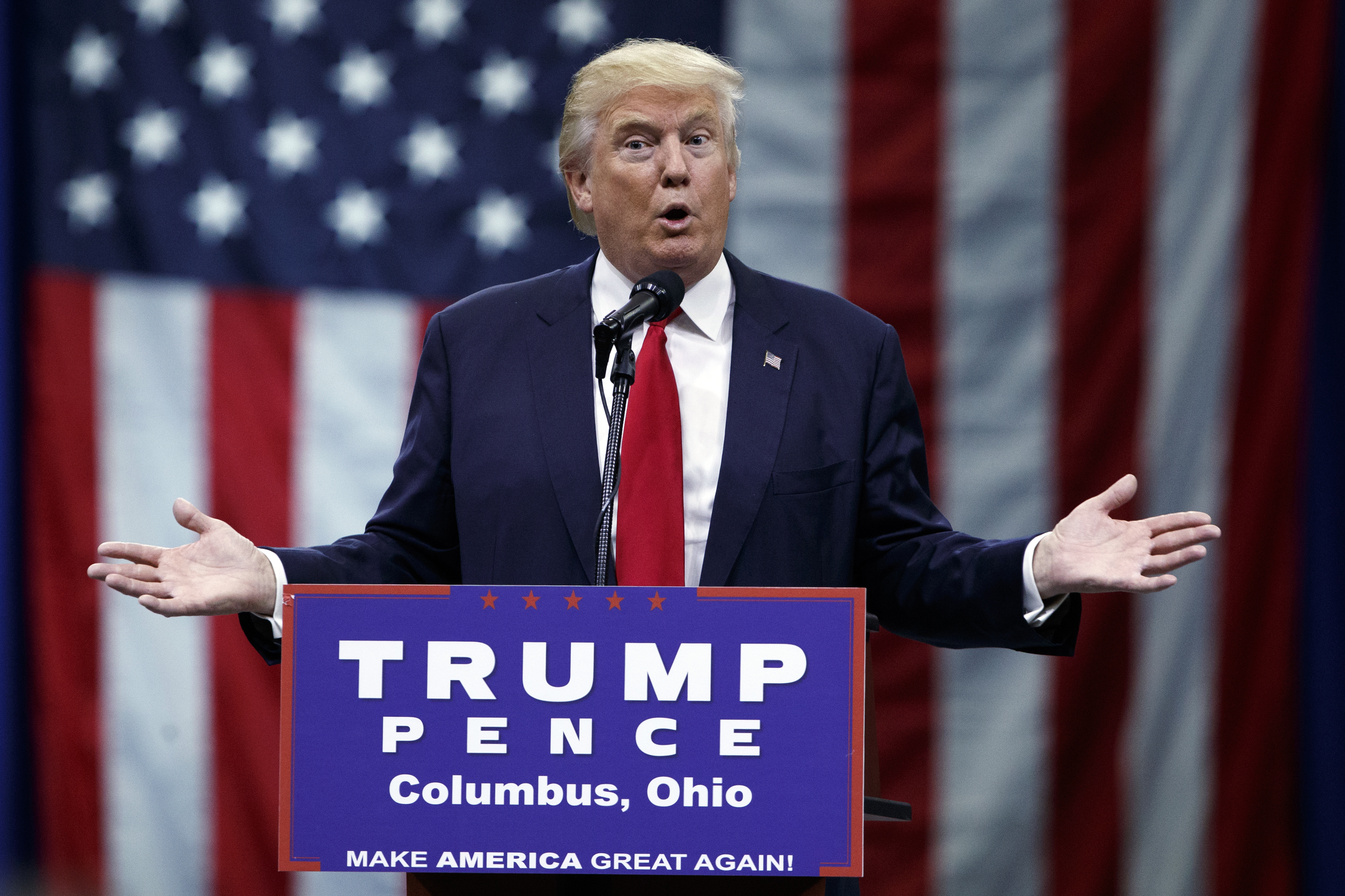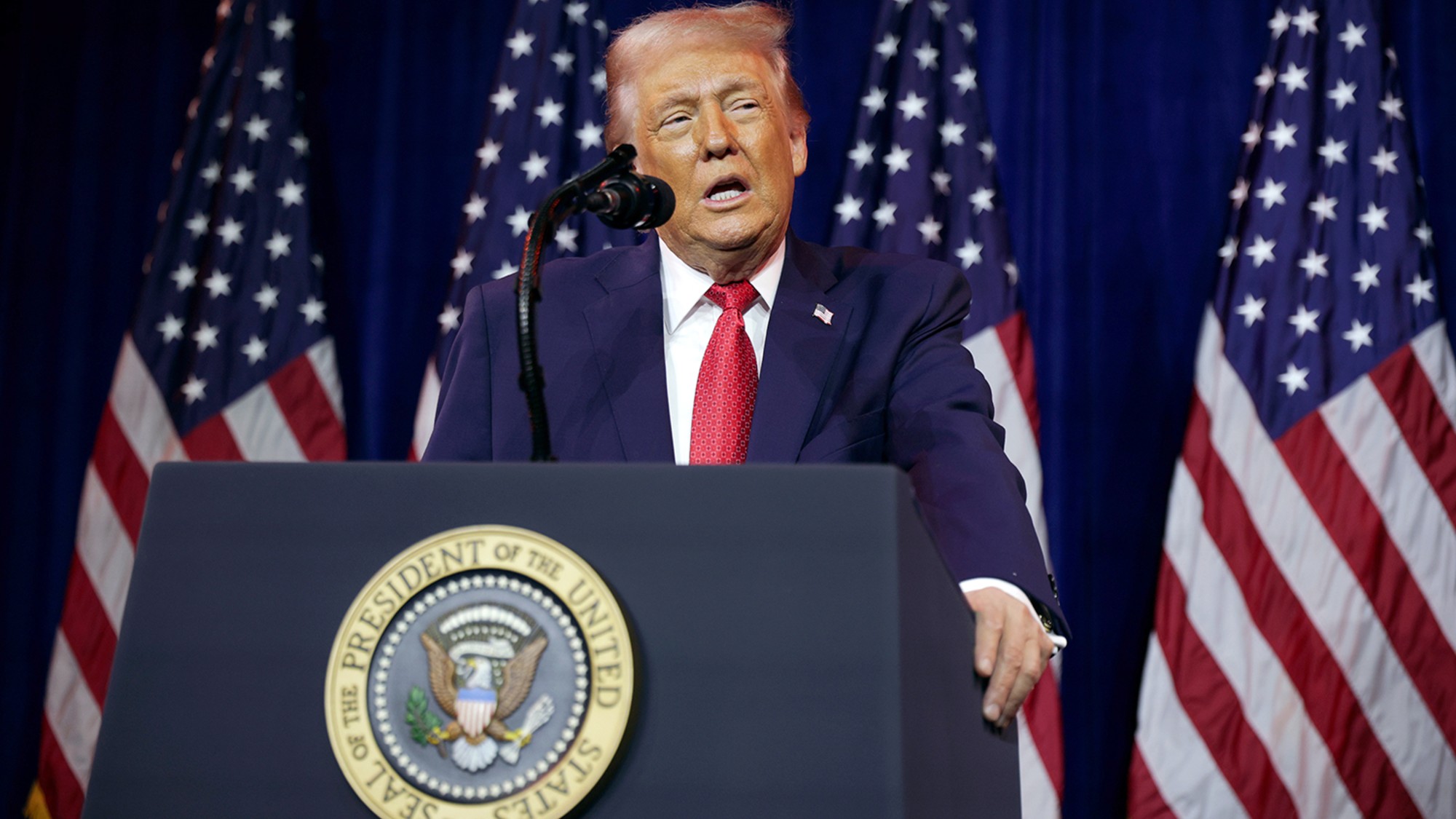The media's foolish moralizing on Donald Trump
This only deepens the already widespread distrust of the mainstream media


The elite media is jam-packed with moralists who have collectively decided in the days since Donald Trump trained his rhetorical fire on Khizr and Ghazala Khan that any pretense of covering the presidential campaign dispassionately deserves to be thrown out the window.
In place of a daily Two Minutes of Hate directed at the Republican nominee, we instead get spontaneous expressions of fulsome disgust every time Trump speaks in public or tweets an attack on Hillary Clinton or his rapidly growing list of bipartisan critics. The moment news breaks of a new Trump Outrage, thousands of people spread the word on social media. And then instantly the attacks begin, first expressing disbelief that Trump would say such a thing, then denouncing him for doing exactly that, with each tweet amplifying the indignation, which crescendos as long as Trump obliges with follow-up statements or tweets, and critics of the original statements or tweets respond with their own statements or tweets. Eventually the wave of righteous anger dissipates, only to be followed by the next.
No one should feel sorry for Donald Trump. Yet I wonder what exactly my colleagues in the media think they're doing with their effusions of bilious Trump hate. Doing their civic duty to take him down? Making sure all of America knows how offensive Trump really is? Or are they really not thinking at all and just impulsively giving vent to passionately held moral convictions in a public forum with like-minded compatriots?
The Week
Escape your echo chamber. Get the facts behind the news, plus analysis from multiple perspectives.

Sign up for The Week's Free Newsletters
From our morning news briefing to a weekly Good News Newsletter, get the best of The Week delivered directly to your inbox.
From our morning news briefing to a weekly Good News Newsletter, get the best of The Week delivered directly to your inbox.
Whatever the motive, the moralistic outbursts should stop. Report what Trump says. Tell us what the Clinton/Kaine campaign and other politicians say in response. And analyze what it all means. But jumping into the political fray en masse, explicitly attacking the Republican nominee, declaring his statements beyond the pale — it isn't smart, and it will do nothing to reinforce the political norms that the Trump campaign itself is actively shredding. In fact it's far more likely to deepen the already widespread distrust of elite institutions in general and the mainstream media in particular.
Consider the Khan affair. Were Trump's remarks tasteless? Absolutely. But no more so — I'd actually say quite a bit less so — than countless other comments he's made over the past year. But wait: How dare I! This is a Gold Star family! A grieving father and mother whose son, Army Captain Humayan Khan, gave the ultimate sacrifice for his country! What could be more horrifying than to slander them?
Here's the thing: The moment Khizr and Ghazala Khan took the stage at the DNC to deliver a speech that savaged the Republican presidential nominee and endorsed the Democratic presidential nominee, they ceased to be any old "Gold Star family." They became political actors and legitimate political targets. You can't claim immunity from political attack after you've launched an attack of your own in primetime at a political convention.
But hold on: Isn't the real problem with Trump's counterattack that it involved a personal smear of the couple — and especially of Ghazala Khan, who stood silently by her husband's side while he delivered his speech? About this silence, Trump remarked to ABC News' George Stephanopoulos, "If you look at his wife, she was standing there. She had nothing to say. She probably, maybe she wasn't allowed to have anything to say." In an interview with Maureen Dowd, he repeated the insinuation: "I'd like to hear his wife say something."
A free daily email with the biggest news stories of the day – and the best features from TheWeek.com
This is not slander.
Confession: When I watched Khizr Khan's moving speech at the convention, I noted his wife standing beside him in silence. And I thought to myself, "If she's not going to speak, why is she on stage? I wonder if the Khans practice a form of Islam that insists on a wife's deference to her husband in public." I was genuinely curious. There are such forms of Islam. And Judaism. And Christianity. And many other religions and cultures around the world. That's not a criticism. It's cultural anthropology.
Now, apparently this wasn't the reason for Ghazala Khan's silence. In a Washington Post op-ed (another supremely political act), she explained that she refrained from speaking because she was unsure if she could maintain her composure when talking about the death of her son. Fair enough. That's certainly understandable and moving — something to which all of us, especially those of us who are parents, can relate.
But that doesn't mean that Trump slandered her by raising the question. And yes, I realize that he wasn't speaking as an anthropologist curious about cultural differences. He was doing the opposite: signaling to his voters that despite the Khans' attempt to portray themselves as quintessentially American they are actually (or potentially) different than the rest of "us."
I get that this is troubling, even ominous. Progressives as well as "movement" conservatives in the Reagan mold like to think of the United States in creedal or ideological terms — as a kind of civic religion of universal principles to which anyone can convert. I prefer thinking about the country in such terms as well. But Trump's entire candidacy is a challenge to that way of thinking. In its place, Trump substitutes a more tribal or ethnically based form of nationalism that apparently comports with how a plurality of Republican voters tend to think and feel.
I'm glad that the Clinton/Kaine ticket, and the Democratic Party as a whole, and Khizr and Ghazala Khan, and even some Republicans and conservative writers are aligned on the other side, pushing back against Trump's effort to transform the GOP into an explicitly ethno-nationalist party. That is what, at bottom, this election — easily the most momentous of my lifetime — is all about.
But should members of the media actively join the battle on the anti-Trump side? The answer is no. Trump was able to take over the GOP this year because millions of Republican voters felt ignored — disenfranchised — by both parties. When hundreds of journalists and other members of the country's political and intellectual elite close ranks, denouncing Trump in unison and in lockstep, attempting to excommunicate him from the political conversation, the voters who consider Trump their voice feel denounced and excommunicated, too.
It often seems that a lot of the country's most prominent journalists and intellectuals would love nothing so much as to be able to make these voters vanish, or shame them back into silence. That, I'm afraid, is a fantasy.
Trump is probably going to lose decisively on Nov. 8. But on Nov. 9, the millions of people who cast ballots for him, who felt heard and championed for the first time in a very long time, will still be here. They are our fellow citizens. They aren't going anywhere.
The rest of us need to get used to that. And stop acting like we can somehow wish or ridicule away those with whom we profoundly disagree.
Damon Linker is a senior correspondent at TheWeek.com. He is also a former contributing editor at The New Republic and the author of The Theocons and The Religious Test.
-
 Why Saudi Arabia is muscling in on the world of anime
Why Saudi Arabia is muscling in on the world of animeUnder the Radar The anime industry is the latest focus of the kingdom’s ‘soft power’ portfolio
-
 Scoundrels, spies and squires in January TV
Scoundrels, spies and squires in January TVthe week recommends This month’s new releases include ‘The Pitt,’ ‘Industry,’ ‘Ponies’ and ‘A Knight of the Seven Kingdoms’
-
 Venezuela: The ‘Donroe doctrine’ takes shape
Venezuela: The ‘Donroe doctrine’ takes shapeFeature President Trump wants to impose “American dominance”
-
 The billionaires’ wealth tax: a catastrophe for California?
The billionaires’ wealth tax: a catastrophe for California?Talking Point Peter Thiel and Larry Page preparing to change state residency
-
 Bari Weiss’ ‘60 Minutes’ scandal is about more than one report
Bari Weiss’ ‘60 Minutes’ scandal is about more than one reportIN THE SPOTLIGHT By blocking an approved segment on a controversial prison holding US deportees in El Salvador, the editor-in-chief of CBS News has become the main story
-
 Has Zohran Mamdani shown the Democrats how to win again?
Has Zohran Mamdani shown the Democrats how to win again?Today’s Big Question New York City mayoral election touted as victory for left-wing populists but moderate centrist wins elsewhere present more complex path for Democratic Party
-
 Millions turn out for anti-Trump ‘No Kings’ rallies
Millions turn out for anti-Trump ‘No Kings’ ralliesSpeed Read An estimated 7 million people participated, 2 million more than at the first ‘No Kings’ protest in June
-
 Ghislaine Maxwell: angling for a Trump pardon
Ghislaine Maxwell: angling for a Trump pardonTalking Point Convicted sex trafficker's testimony could shed new light on president's links to Jeffrey Epstein
-
 The last words and final moments of 40 presidents
The last words and final moments of 40 presidentsThe Explainer Some are eloquent quotes worthy of the holders of the highest office in the nation, and others... aren't
-
 The JFK files: the truth at last?
The JFK files: the truth at last?In The Spotlight More than 64,000 previously classified documents relating the 1963 assassination of John F. Kennedy have been released by the Trump administration
-
 'Seriously, not literally': how should the world take Donald Trump?
'Seriously, not literally': how should the world take Donald Trump?Today's big question White House rhetoric and reality look likely to become increasingly blurred
